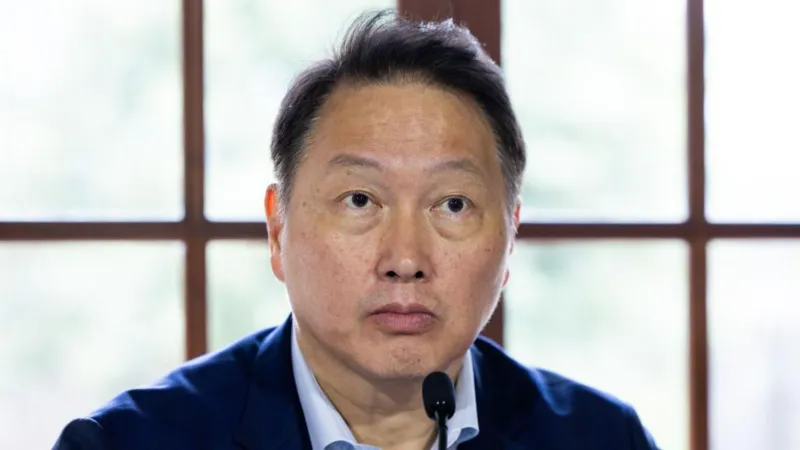Tycoon told to pay $1bn in record divorce ruling
South Korean tycoon Chey Tae-won has been ordered to pay his ex-wife 1.38 trillion won ($1bn; £788m) in cash - the country's largest ever divorce settlement.

It comes nearly a decade after Mr Chey's marriage fell apart following the revelation he had fathered a child with his lover.
The Seoul High Court on Thursday ruled that Roh So-young - whom he was married to for 35 years - was entitled to a portion of his company shares.
Lawyers for Mr Chey - chairman of the powerful SK Group conglomerate - said he would appeal, claiming the court had taken "Roh's one-sided claim as factual".
The amount awarded to Ms Roh was a significant increase from the 66.5bn-settlement ruled by a lower court in 2022.
That family court had also rejected Ms Roh's request that she be given a portion of Mr Chey's SK shares.
This was overturned on Thursday, when the High Court found that the shares should be considered joint property.
In its verdict, the court stated that "it was reasonable to rule that, as his wife, Roh played a role in increasing the value of SK Group and Chey's business activity".
The court put Mr Chey's wealth at around 4tn won, meaning Ms Roh - with whom Mr Chey had three children - would take an estimated 35%.
It also found that Ms Roh had helped ease regulatory hurdles for Mr Chey's business and that her father - former South Korean President Roh Tae-woo - had "played the role of a protective shield" for SK's ex-chairman Chey Jong-hyon.
The court said Mr Chey had not shown "any signs of remorse for his foul behaviour in the course of the trial... nor respect for monogamy" and said the new settlement took into account Ms Roh's suffering over her ex-husband's extramarital affair.
Mr Chey's lawyers argued that, rather than his ex-wife's political connections enhancing his business, they had been a disadvantage.
Shares in SK Inc - which is one of the world's biggest makers of semiconductors and also has interests in telecoms, chemicals and energy - jumped 9% following the ruling.
-bbc







